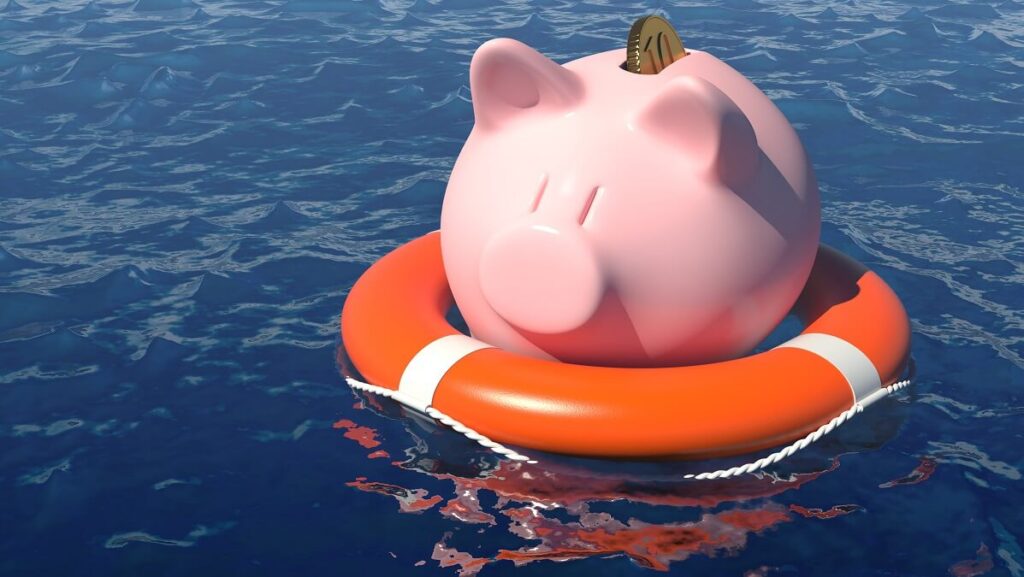Many people know it’s wise to keep an emergency savings pot to cover the bills and core living costs for at least a few months, in case something unexpected happens, or you suddenly need to cover some important repairs.
But how much money should you be keeping in your emergency pot in retirement? It may be more than you think.
Nearly a fifth (17 per cent) of over-65s often worry about their lack of savings, financial services provider Hargreaves Lansdown recently found. One in 12 (8 per cent) retirees could cover the essentials for less than a month from their savings, and another one in six (16 per cent) could cover between one to three months’ worth.
Sarah Coles, a personal finance analyst at Hargreaves Lansdown, says as a rough rule of thumb, people should have three to six months’ worth of essential expenses set aside in a competitive easy-access account. But after retirement, this actually grows to one to three years’ worth of savings, she says.
Many people may think they need a smaller emergency pot in retirement, with – hopefully – the mortgage having been paid off, and children having flown the nest.
But Ms Coles says that as those who have ended work can’t meet emergency costs out of future earnings, it’s vital they have an adequate financial safety net to deal with the unexpected.
The secret to building a bigger savings buffer is to start small and save regularly. It doesn’t matter how much – or how little – you save, you just need to make a start, and then keep going.
For example, if you save as little as $10 or $20 per week, you’ll have $520 or even $1040 by the end of the year. That’s the start of a solid savings account that will give you some financial breathing space.
Saving regularly is the best way to build up your savings balance. Set up a separate high interest account for your savings to go into via automated payments set up with your bank.
If you find a savings account that offers bonus interest for every month you don’t make a withdrawal, you’ll be less likely to touch the money unless it’s an emergency.
Build a bigger emergency savings pot
Here are five top tips to help retirees build a bigger emergency savings pot.
Set a goal for your emergency fund
How much money do you want to have in your emergency fund, and how soon do you want it?
Figures quoted by experts can vary widely. What they all agree on is getting started – having something in your emergency fund, even a few hundred dollars, is better than nothing. So, set a goal that’s achievable and realistic, and not so daunting that it’ll prevent you from even getting started.
Plan it
Once you know how much you want to save, you need to work out how to get there. Saving for your emergency fund should take into account your income and savings goals, and then look at all the ways you can cut back on your expenses.
Let’s say you want to save $2000 in six months: that’s about $330 a month, or around $11 a day.
Track your expenses
It’s easy to lose track of the money you spend every day. By getting into the habit of recording what you are spending your money on, you’ll be able to identify areas where you can save. Keeping track of your spending can also help you avoid impulse buying.
If you need to save from your income, look at what you have coming in and what you are spending, and see whether it’s possible to free up cash. Creating a spreadsheet and tracking your spending will help pinpoint any areas where you can tighten your belt.
It’s likely non-essential items that you can save on. But you can also save money by talking to suppliers, such as your electricity, water and gas suppliers and mobile phone provider to negotiate better plans.
Look into paid employment
If your budget is too tight to save, and you’re early on in your retirement, paid employment might be an option. It doesn’t need to look anything like your previous job. Some people can make money from the skills they’ve built up over the years, such as DIY or gardening.
Look at alternative ways to make money
Consider whether your home could help produce extra income. You might be able to rent out a room for a period. You could consider renting out your drive or any extra storage space.
Keep your emergency fund for expenses you need to pay quickly when other money isn’t available. If it can wait, save up for a few weeks and pay it from this saved money instead. If you do need to dip into your emergency fund, make sure you work on building it up again.
Do you have an emergency savings pot? How do you save each week? Let us know in the comments section below.
Also read: Simple tips for big savings
– With PA
Disclaimer: All content on YourLifeChoices website is of a general nature and has been prepared without taking into account your objectives, financial situation or needs. It has been prepared with due care but no guarantees are provided for the ongoing accuracy or relevance. Before making a decision based on this information, you should consider its appropriateness in regard to your own circumstances. You should seek professional advice from a financial planner, lawyer or tax agent in relation to any aspects that affect your financial and legal circumstances.

